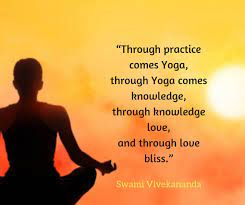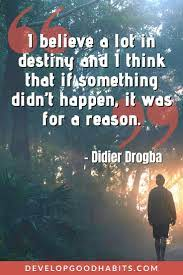Quote from true Charm and Vedanta
Raja Yoga

All of us possess a glorus body which can be made manifest by meditation
Patanjali makes mention or it (Kayasampat) in the third chapter of the Yoga
Aphorisms and Vivekanda commenting on Patanjali says that nothing can injure
this body. “Breaking the rod of time man lives in the universe with this body
“Echoes of this can be found in st pauls words “Your body is the temple of the
Holy Spirit who is in you , which you received from God Glorify God in your
body and in your spirit which belongs to God
As you eat, treat the source, not symptom
By Narayani Ganesh
There is something to be said in favour of traditional healing systems anywhere in the world that seek to treat the source of the malady rather than address symptoms. For instance, headaches, muscle pain, fever, obesity, low energy are all symptoms of a deeper malaise, but we rush to suppress or obliterate the symptom instead of going to the root cause. This is true of both physical and mental illnesses, for what we see is not what needs to be treated; the cause lies elsewhere; symptoms are warning signals begging us to investigate and apply remedies to the disease.
Among the most effective and harmless methods of achieving holistic
wellness is to eat right. By adopting the right diet, one can arrest progress
of many diseases and natural
health-enhancing foods tend to maintain good energy levels, and are not
associated with bad side-effects unless of course for example, one is prone to
allergies to specific nuts and spices.
According to Ayurveda, health science is divided into eight specialised branches: general medicine, pediatrics, psychiatry plus psychosomatic diseases, diseases related to ENT plus head and eyes, general surgery, toxicology, rejuvenation therapy and aphrodisiac therapy. Every living and non-living being is a combination of the five basic eternal elements, the panchamahabhootas – earth, water, fire, air and ether. The additional input in the human body is chetna, consciousness, the life spark, spirit or soul.
The five elements manifest in the body as tridosha, the three basic
principles, subtle energies – vata, pitta and kapha. Air and ether combine as
vata; fire makes up pitta, and the earth and water elements combine in kapha.
These three basic principles govern all biological, physiological and
physio-pathological factors of body, mind and consciousness.
At the Kerala Travel Mart 2022 held in Kochi recently, several stalls
displayed Ayurvedic products and locally grown spices while others showcased
spas, wellness resorts and Ayurvedic hospitals designed as healing getaways,
complete with trained doctors, nurses, treatments and therapies.
‘Annam Vrittikaraanaam Shreshthaha’ – wholesome food enhances our vitality and strength and makes the body sturdy – advised a board in Sanskrit, displayed at the food court, at the Somatheeram Ayurvedic foodstall that offered delicious preparations conforming to ayurvedic principles. All parts of the banana tree were transformed into delectable dishes like banana flower cutlets that melt in your mouth; a pinkish water drink made with herb and root infusions that serve as a pick-me-up; dried ginger coffee; flattened red rice mixed with palm sugar, moringa (drumstick) soup, millet chapatis and more. Says Somatheeram founder and president of KTM, Baby Mathew, “The 260 dishes compiled based on this ancient science include soups, salads, juices and regular meal items. Soma was a juice consumed for eternity by the gods and theeram means sandy beach – it’s a great combination to heal mind, body and soul.”
A combination of yoga, meditation, health-promoting food and salubrious
surroundings can create the perfect balance that keeps mind, body and soul
together. A Chinese proverb says, “You are what you eat.” This brings to mind
the popular nursery rhyme: “It’s a very odd thing /As odd as can be – /That whatever Miss T eats, /Turns into Miss
T!”
IF HE EXIST
I drive joy there was a doctor in
Benaras who spent 7 minutes in the morning and evening for mediation on God.
Knowing this, his colleagues and friends laughed at him. One day they argued
that he was wasting 7 precious minutes on something, which he had been misled
into believing. The doctor replied, “Well, if God does not exist, I agree that
I am wasting 7 minutes a day. But, if He exists? I am afraid you are wasting
your entire lifetime. I prefer to waste 7 minutes rather than a lifetime. Why
should you grudge me the 7minutes joy that I derive 4m.-
ILLUSTRATED REVIEW : 7th heaven Gt won ipl by 7 wk, in French open Bopana won on 77,




















